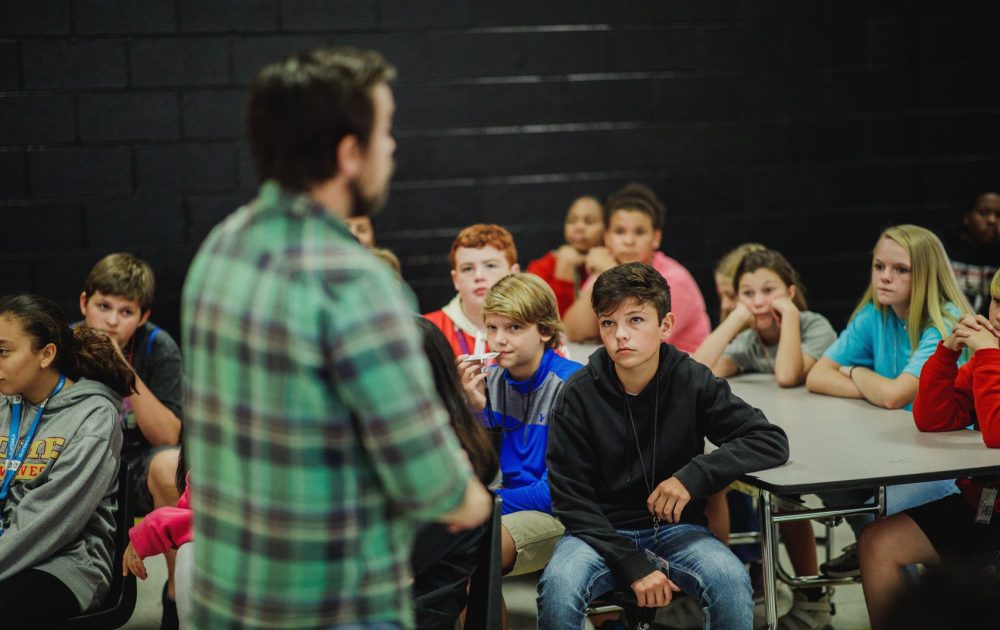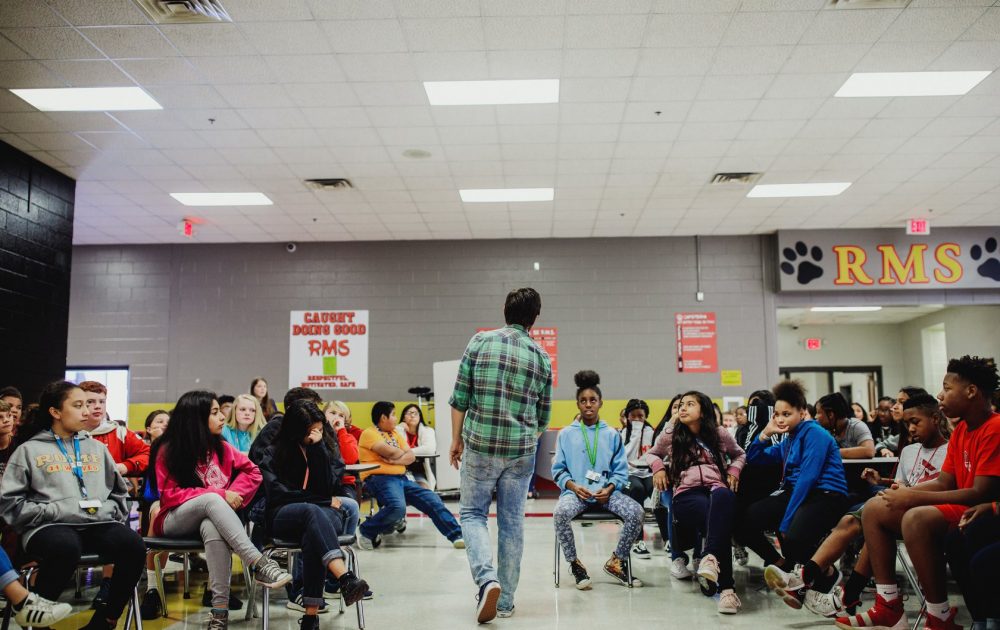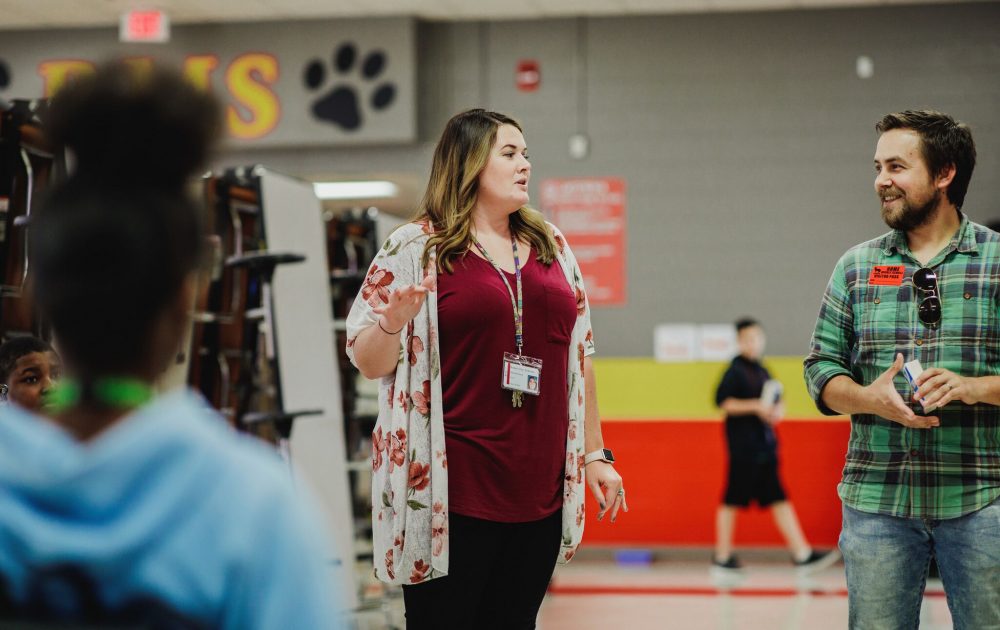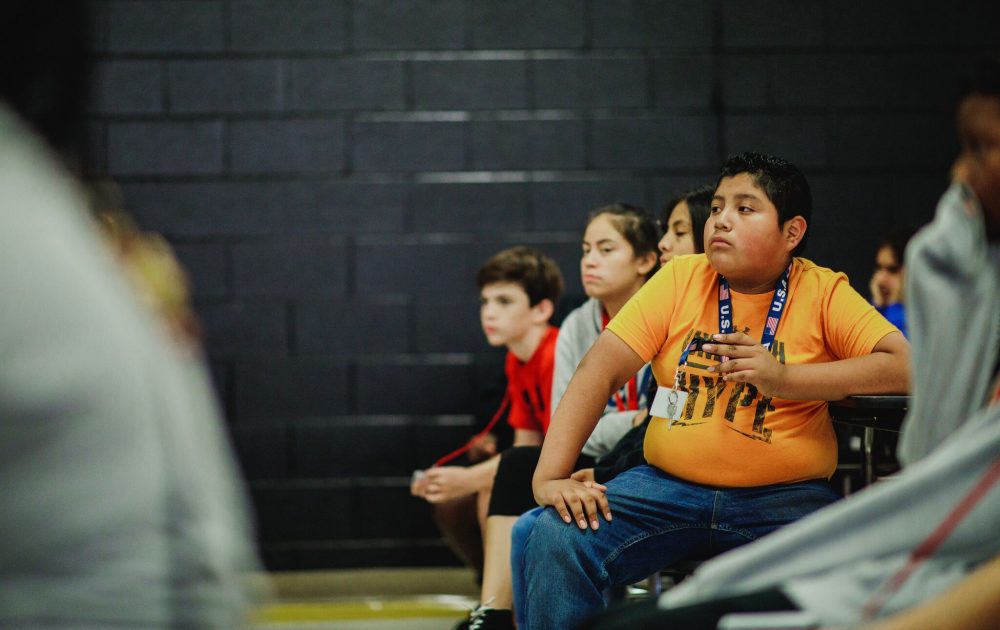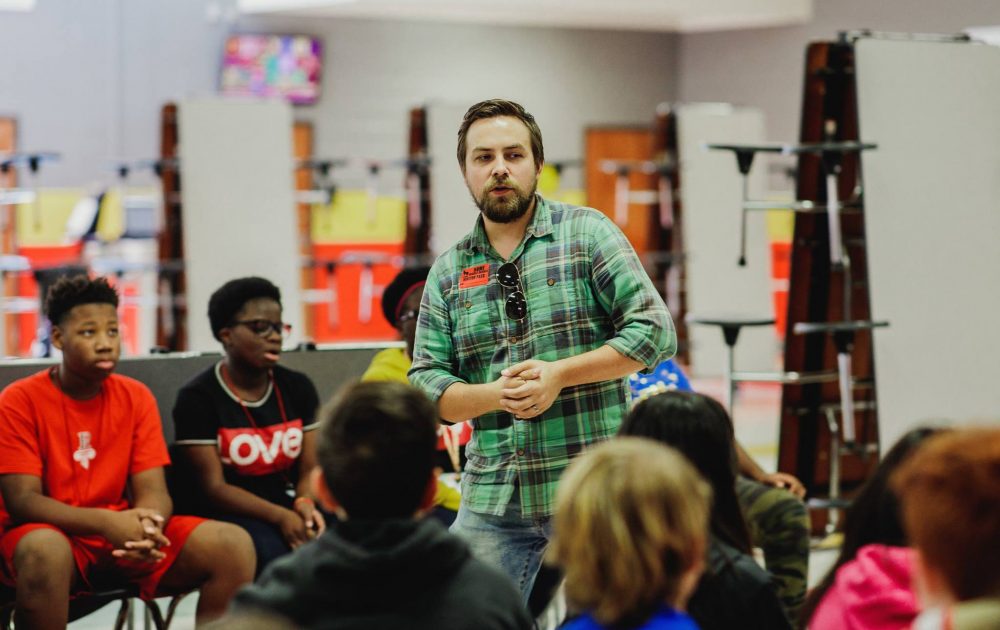
Photos by Rome City Schools - Jessie Demonbreun-Chapman
Around 70 members of the Rome Middle School Science, Technology, Engineering and Math (STEM) Team gathered in the school cafeteria to listen to lecture from Coosa River Basin Initiative’s (CRBI) Executive Director, Jesse Demonbreun-Chapman.
Demonbreun-Chapman and CRBI’s mission is to work to help clean, protect and preserve the upper Coosa River Basin. Demonbreun-Chapman said, “We live in a special place with some incredible ecosystems that are worth protecting.”
This is what sparked the idea for a collaborative project shared by CRBI and Rome Middle School’s STEM Team.
Rome Middle School STEM Team Leader, Danielle Dixon, explained, “We are starting one of our big STEM projects to address water issues, which is why we have partnered with CRBI in helping us monitor the water, wetlands and how damaging the ecosystems affects the plants and wildlife that live there. We as human beings also depend on and are sustained by the water,” said Dixon.
Demonbreun-Chapman asked trivia questions about the rivers in Rome, with all of the questions taken from lessons Dixon and other RMS teachers gave to their students leading up to this event. He also gave the students several ways to keep the river clean.
Dixon took the time to explain to her students that their actions matter. “It is important to show them that what we do in and around Rome affects other people, and not just us. This lesson also relates to their readings in English Language Arts as well,” said Dixon.
“We love getting students involved and paying attention because of the overall impact they can make on society,” said Demonbreun-Chapman. “We are excited for the opportunity to reach a large number of students and get them actively engaged, not only in the science of conservation, but also just paying attention to creeks and waterways. Many of us don’t necessarily pay attention to all of our waterways as much as we should.”

